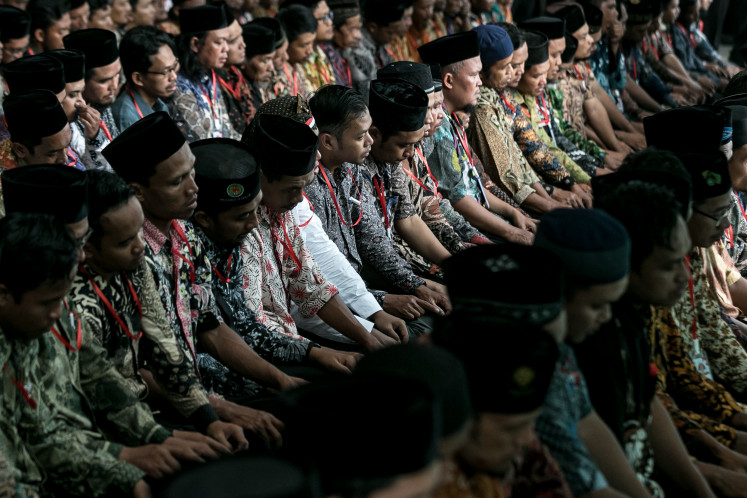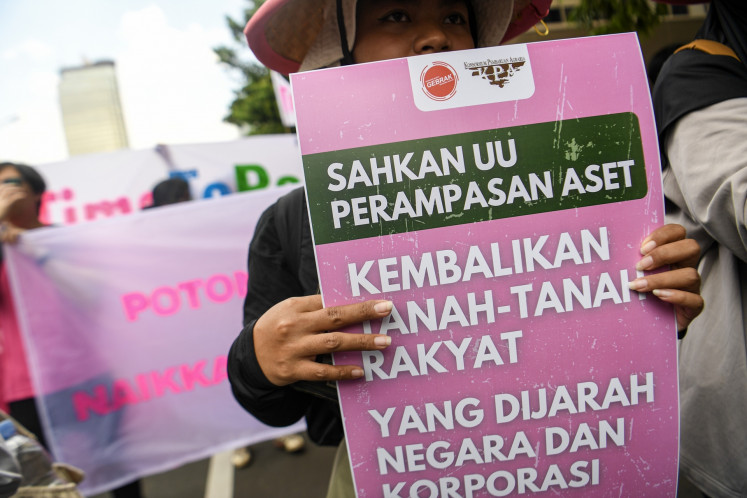Popular Reads
Top Results
Can't find what you're looking for?
View all search resultsPopular Reads
Top Results
Can't find what you're looking for?
View all search resultsThree reasons why we shouldn’t underrate the sharing economy
Customers are no longer positioned as trading objects, but companies’ strategic partners, taking part in new product development. By doing this, market will get what is needed instead of what is wanted. This is true economic value.
Change text size
Gift Premium Articles
to Anyone
B
usiness debates between on-line and traditional-platform taxis in Jakarta have reminded us of the concept of the sharing economy. Though the concept seems novel, it actually first appeared in 1978 when Felson and Spaeth wrote an article on collaborative consumption published by American Behavioral Scientist. The paper raised some points on how consumers should consider the idle capacity of their assets.
Provisionally, the sharing economy remains the third sector of economy, but in the wake of the great global recession of the late 90s, the term chimes all the more with current capitalism. Our society has realized how important economic fairness is in terms of transparency, honesty and accountability.
Many studies found strong evidence that the idea had grown tremendously among scholars over the past four years. In fact, it has been deployed on a business level strategy. Airbnb, TripAdvisor, Instacart and Khan Academy are among the top market leaders that have brought the concept alive.
Many have predicted that the movement will get stronger for the next few years, especially in emerging markets. Forgoing the concept will create a potential economic lag. This is why we should consider the idea carefully.
First, the internet means communication can be performed at the highest level. Proper use of smartphones allows businesses to meet their potential customers in second. As such, the elimination of distribution channels will create efficiency for all parties. Customers are no longer positioned as trading objects, but companies’ strategic partners, taking part in new product development. By doing this, market will get what is needed instead of what is wanted. This is true economic value.
On the other hand, the internet can provide in-time facility for customers to meet product or service users beyond borders, thereby enhancing post-purchase activity. Markets for second hand-products tend to maintain business cycles, thus creating more stable economic welfare.
Secondly, collaborative consumption is acknowledged as a new life style. The growth of GPS has given us the power to deal with time constraints. Society will be equipped with the ability to deal with resource limitation. For example, a start-up entrepreneur will benefit from crowd funding platforms, or open-source education platforms (i.e. Khan Academy, or peer to peer university), which successfully create access to knowledge for everyone. Willingness to help others will be the best fertilizer for the new movement.
Lastly, the sharing economy is proven to create better economic performance. Uber and Airbnb tripled their return in 2014-2015. This is the trigger point of why Middle Eastern funds tend to be invested in similar platforms. As we move out of the golden period of oil, more investors are looking for promising business paradigms. Even China has been targeted for the future green-land sharing economy by US and European companies.
Will Indonesia be the next target? Let’s see.
***
Aries Heru Prasetyo is a PhD student, College of Management, Fu Jen Catholic University, Republic of China. He is a part of research team for Taiwan industry.
---------------
We are looking for information, opinions, and in-depth analysis from experts or scholars in a variety of fields. We choose articles based on facts or opinions about general news, as well as quality analysis and commentary about Indonesia or international events. Send your piece to community@jakpost.com.










